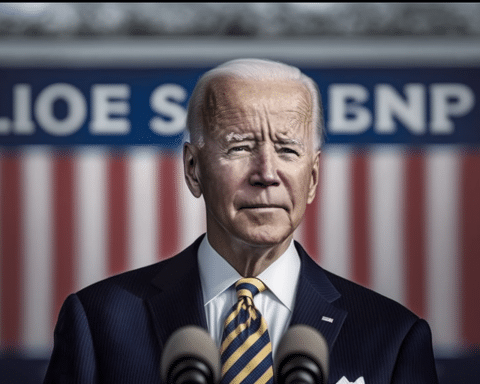To secure more votes, House Republicans introduced late-night revisions to their comprehensive debt ceiling package. Speaker Kevin McCarthy aimed to initiate debate and gather support from his narrow majority for a speedy vote on Wednesday.
If the House approves the extensive 320-page package, it would be a win for McCarthy, whose Republican majority is pushing for spending limitations and cuts in return for approving a $1.5 trillion increase in debt to cover the nation’s expenses. While President Joe Biden has threatened to veto the Republican bill, McCarthy is attempting to use the GOP plan as a starting point for negotiations to avoid a potentially disastrous federal debt default this summer.
Majority Leader Steve Scalise announced after a House Republican meeting that a vote could occur as early as Wednesday. However, some Republicans predicted that the final roll call might be pushed to Thursday.
Despite McCarthy’s previous insistence that there would be no changes to the bill, revisions were made during a 2 a.m. session of the House Rules Committee. In response to pushback from Midwestern Republicans, biofuel tax credits were maintained in the bill. Additionally, Republicans agreed to rapidly implement strengthened work requirements for government aid recipients, beginning in 2024.
With a slim majority and several absences, McCarthy has virtually no votes to spare. Despite opposition from Democrats, who believe the package will not pass in the Senate, McCarthy is using the bill to initiate discussions with Democrats. He acknowledged that not all House Republicans support the proposal but emphasized that the bill’s passage would only be the starting point for negotiations with Biden and Democrats.

The situation is a significant challenge for both the president and the Republican speaker, with growing political anxiety over the need to raise the $31 trillion federal debt limit to maintain payments on the country’s existing debts. The Treasury Department employs “extraordinary measures” to cover expenses, but funds are expected to be exhausted this summer.
Economists and experts warn that even the mere threat of a federal debt default could severely affect the economy. The Republican debt ceiling package proposes raising the debt limit by $1.5 trillion through 2024 in exchange for rolling back federal spending to fiscal 2022 levels and capping annual spending increases at 1% for the next ten years.
The package also includes stricter work requirements for food stamp and government aid recipients, ends Biden’s plans to forgive up to $20,000 in student loans, and repeals the renewable energy tax breaks signed into law by the president last year. Furthermore, the package incorporates a comprehensive Republican bill to promote oil, gas, and coal production.
A nonpartisan Congressional Budget Office analysis released on Tuesday revealed that the Republican plan would decrease federal deficits by $4.8 trillion over the decade if the proposed changes were implemented.
Democrats have criticized the package for containing what Biden called “wacko” Republican ideas and merely worsening the “same old trickle-down” economics favoured by the GOP. Senate Democrats, who hold the majority, have declared the Republican plan dead on arrival.
Rep. Jim McGovern, the top Democrat on the House Rules panel, criticized the last-minute changes made to the package, particularly the imposition of stricter work requirements for recipients of food stamps and other government assistance.
Despite the challenges ahead, McCarthy remains determined to use the package as a political strategy to stimulate debate and begin negotiations with Democrats. By passing the bill, McCarthy hopes to prompt discussions with the Biden administration, which has been unwilling to engage with House Republicans over what the White House calls “hostage-taking” regarding the debt ceiling.




